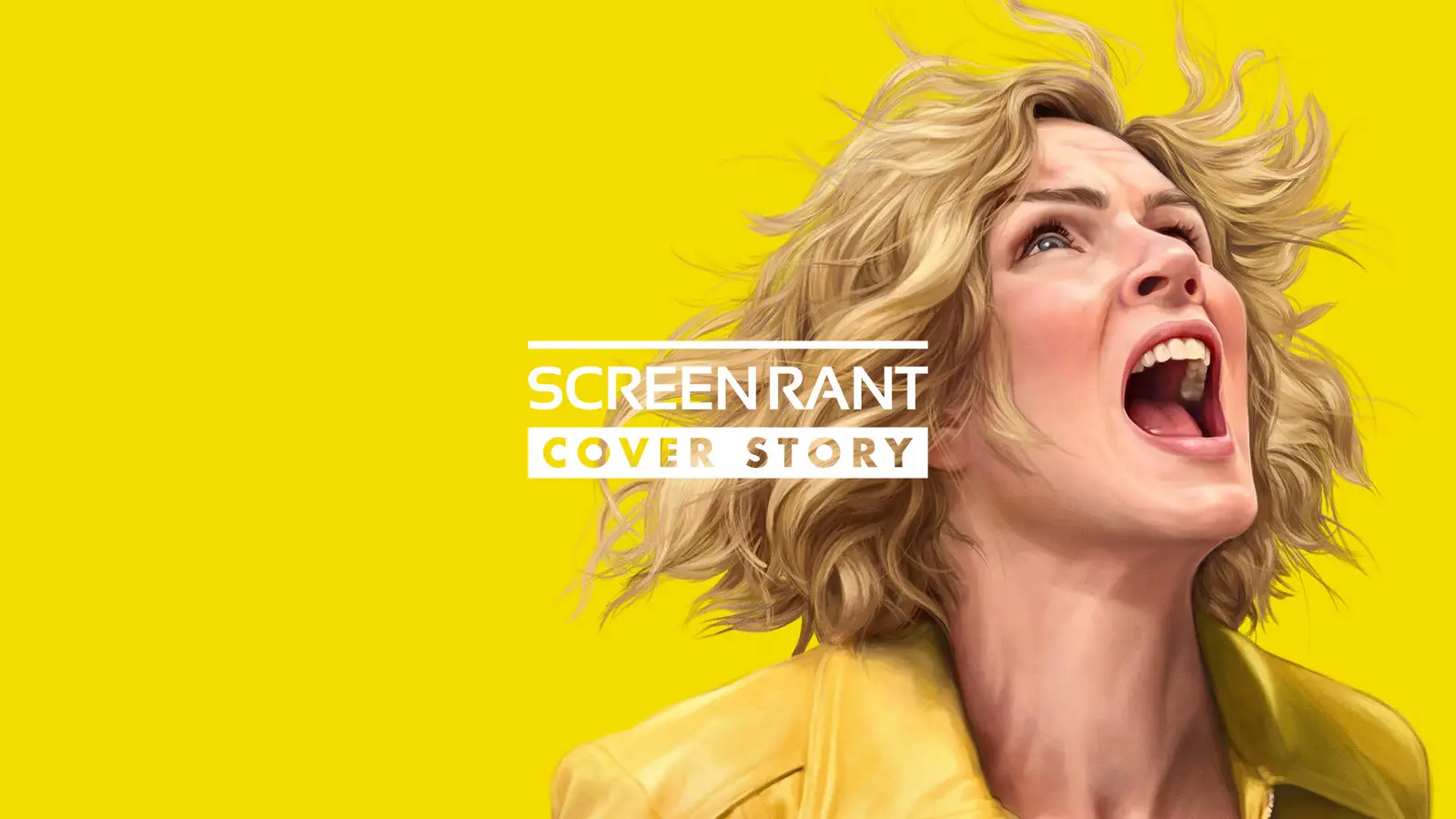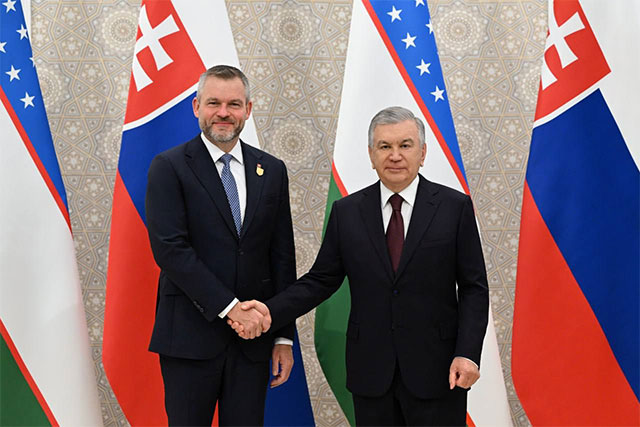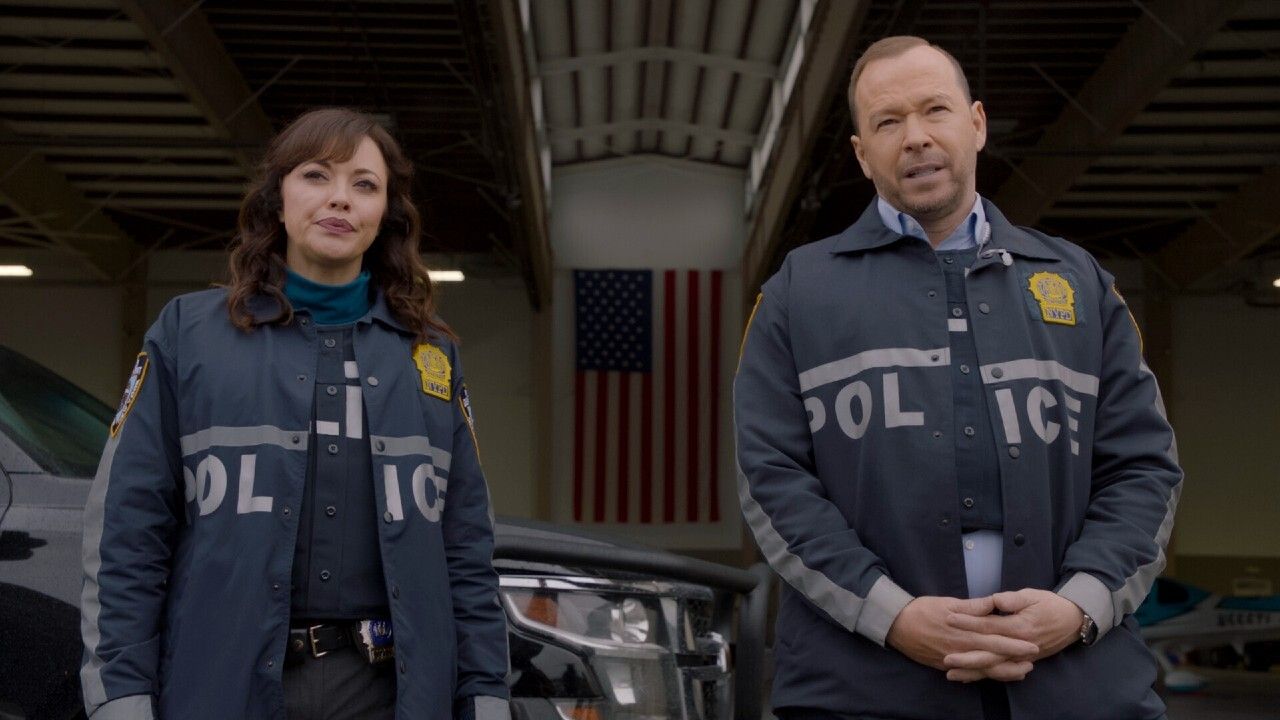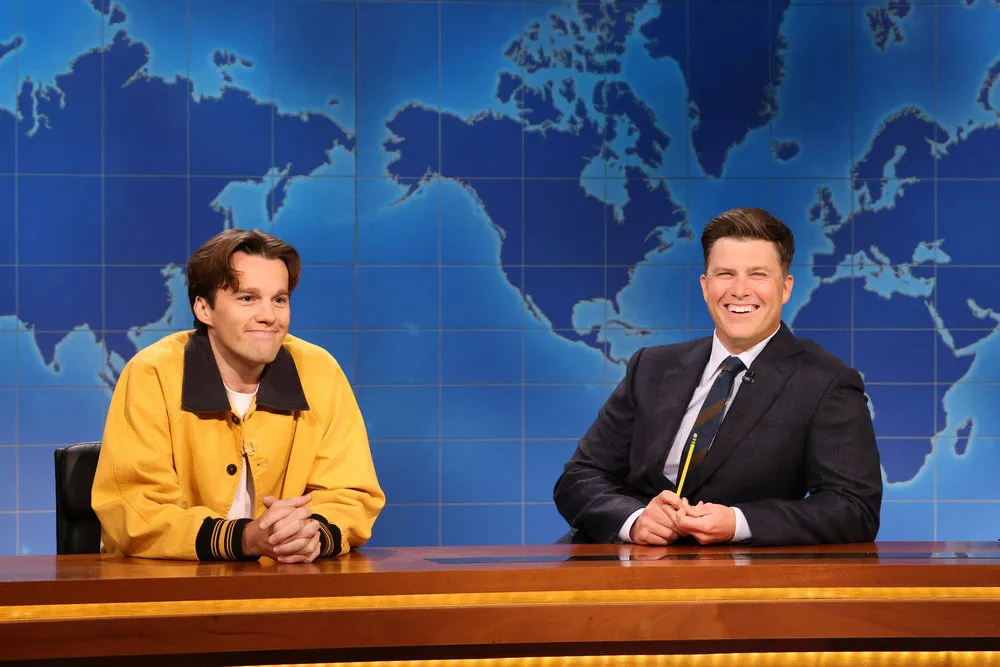Copyright Screen Rant

On the desolate streets of Alburquerque, New Mexico, Rhea Seehorn wanders alone, shell-shocked by what she's just witnessed. Behind the camera, Vince Gilligan makes sure to capture Seehorn's slyly emotive expression as the world crumbles around her. But this isn't the set of Better Call Saul, Seehorn and Gilligan's previous collaboration that also called New Mexico its home. This is something quite different. Technically, the world is ending, but no one really seems to mind except for Carol Sturka, Seehorn's enigmatic new character. Amid the chaos that includes downed planes and violent car wrecks, a horde of overtly benevolent people ask Carol if she's okay, but she's too scared to answer. This is howPluribusbegins. The series is Gilligan's first outside the world ofBreaking Bad in almost two decades and a massive new venture for Apple TV, theunofficial streaming home for bold, prestige sci-fi. The new series is joining the ranks ofSeverance,Silo, and more. But don't expect this to be your average sci-fi thriller. Gilligan, who cut his teeth on The X-Files before releasing two of the most acclaimed shows of all time, has a different vision for the apocalypse. Vince Gilligan Is Stepping Outside His Comfort Zone For Pluribus It Marks A Number Of Firsts For The Creator “It’s mostly just fear any time you embark on something new,” says Gilligan of Pluribus. After working within the Breaking Bad universe for nearly 15 years, the creator was embarking on something entirely new. “There’s a lot of money on the line, a lot of people’s livelihoods.” “You want it to be a success for selfish reasons,” Gilligan notes. After earning years of acclaim for both Breaking Bad and Better Call Saul, it would be shocking if Gilligan didn’t set such high standards for himself. After all, the former is often cited as one of the greatest television shows of all time. The Breaking Bad universe spans 11 seasons over 125 episodes, plus a movie spinoff, El Camino, centered on Aaron Paul's character Jesse Pinkman. “[But you want it to be a success] for some slightly more noble reasons, too.” One of those reasons lies at the heart of what Pluribus is - an idiosyncratic and original new concept that blends Gilligan’s grounded sensibilities with a grand apocalyptic vision. “There’s a lot of fear because it’s endemic in the business now - everybody is much more comfortable doing IP, rebooting stuff that preexists and I think it’s stuff [they] feel is more easy to bet or bank on.” Apple TV is no stranger to IP, either. Alongside Severance, an original concept, some of their biggest shows are adaptations - Foundation is based on Isaac Asimov’s sci-fi novels, while Silo is also a book-to-screen translation with Hugh Howey’s trilogy of novels serving as its inspiration. “I feel very fortunate that Apple and Sony were behind me doing something completely new," Gilligan tells ScreenRant. "That made me feel very flattered and very proud. I want to do good for them because they took a bet on me that a lot of companies won’t make nowadays.” I'm really proud of it, but it almost killed all of us. Given Gilligan’s track record, it seems like a pretty safe bet. Though it took some time, Breaking Bad grew into a genuine cultural force by its final season, which aired in 2012 and 2013. Better Call Saul, while smaller in scale, still earned near-universal acclaim during its six-season run. Gilligan’s touch, intensely humanistic even when dealing in operatic tragedy, is largely unmatched. But, even when he was neck deep in all things Saul, Gilligan couldn’t help but wonder what was next. “I started thinking about this show probably eight or nine years ago [when] I was working on Better Call Saul.” Gilligan would take long walks around the Burbank, California, neighborhood where the writer’s room was located, letting his mind wander to anything but the corrupt lawyer at the center of that series. “You’re already in the room for 12 hours a day, so you need a break [and] I started pondering this idea about a guy who the world is really, really nice to. Everybody loves this guy. They’re very solicitous to a degree that’s just insane. People will do anything and everything to make this guy happy.” Sounds nice, right? That kernel of an idea led Gilligan to do something he’d never done before: “I created this show just for Rhea,” Gilligan says. After thinking about the story for months, he realized that “she’d be great in this thing.” But things could’ve gone very differently. Like Jesse Pinkman before her, Kim Wexler was not long for this world when the Breaking Bad prequel series began. “When [Better Call Saul co-creator] Peter Gould and I hired [Rhea], we didn’t know where her character was going.” But, as Gilligan says, Seehorn made herself “indispensable” to the series. Gilligan thought of Aaron Paul, who played Jesse Pinkman in Breaking Bad. Originally, Gilligan was set to kill Jesse off at the end of season 1, but Paul became such an integral part of the show - to the story, to the cast and crew, to the fans - that Gilligan changed his mind. Seehorn’s Kim Wexler experienced a similar trajectory and Better Call Saul was all the better for it. Who Is Carol Sturka & Why Is She So Unhappy? Rhea Seehorn's Next Role Is Just As Meaty As Kim Wexler Kim is the beating heart of Better Call Saul - Seehorn is “money in the bank” as Gilligan says. It’s the same for her Pluribus character, Carol Sturka, who we first meet at a book signing for the latest novel in her Winds of Wycaro romantasy series. She eagerly engages with fans after reading an excerpt, all smiles and gratitude until she’s alone with her manager-wife Helen, played by Miriam Shor. It’s in the backseat of chauffeured cars and in the corners of dimly lit bars where Carol lets her true cynical side come out, brushing off the adulation of her fans and denigrating the genre she made her name in. This bitterness is balanced out by Helen’s warmth, but it will also quickly become Carol’s only thing to cling onto as she faces a brave new world. Seehorn wasn’t concerned about the particulars, though. “Initially, when [Vince] said that he wrote a lead for me, but he wasn’t ready to give me the script, I just said yes. It doesn’t matter. I don’t care. Whatever he wrote was going to be great.” Still, that didn’t prepare her for what she was about to discover. “I only had the pilot for a long time and that was bonkers. I didn’t know where the show was going, so what would this world be?” Seehorn pondered. “And then I had the second one, and then throughout shooting I would get them and it just [kept] making me question new things.” Pluribus is indeed a departure for Gilligan, but there are ways in which the writer-director-creator taps into his unique sensibilities. “It’s so hilariously funny sometimes in its observation of human behavior," Seehorn says, "But then also these deep dive questions with gun-wrenching pain.” TV is just TV. It's not a cure for cancer - never was, never will be. Instead of these observations happening in a family or crime setting, though, Pluribus tackles them through the lens of an unconventional apocalypse. Without spoiling too much, it’s safe to say that Carol eventually wakes up with the world around her changed, and those who are left are hellbent on making her happy. She’s anything but, though. In the midst of grief and anger, Carol doesn’t want to be placated. She just wants answers. But the apocalypse can be an isolating time and Carol spends much of Pluribus’s first season searching for the "why" of it all and, most importantly, answers on how she can fix it. “I knew it would be very, very challenging as an actor to play all the things that he wanted. And it’s genre defying, it’s switching tones, sometimes within the same scene,” Seehorn says of the complex story at the heart of Pluribus. “There’s nobody I’d rather do that with than Vince.” Karolina Wydra, who stars as Zosia, Carol’s apocalypse chaperone, felt similarly. “I was just blown away by [Vince’s] vision of this big idea that he created - of what it means, what is human nature, what is happiness, what is contentment?” These big questions didn’t scare Wydra or Seehorn, though. “[Vince] is such a master of his craft,” Wydra says, “His writing has so many nuances and so much humor. And it’s so different than anything he’s made [before].” But while Wydra’s Zosia is an integral part of Pluribus, Carol spends a lot of time alone trying to process the end of the world. She rebuffs efforts to make her more comfortable, choosing instead to watch old Golden Girls DVDs in her suburban Albuquerque home, being waited on from afar by those who are more comfortable at the end of the world. For Seehorn, who primarily worked within an ensemble on Better Call Saul, it marks a different kind of dramatic turn, one that is reflected in the scale that Gilligan, who directed the first two episodes, puts on the screen. How Vince Gilligan Staged His Pluribus Apocalypse Taking Over City Blocks & Setting Up An Impossible Shot While Pluribus is mostly set after the apocalypse, the first two episodes, which will release simultaneously on Apple TV on November 7, is all about the beginning of the end of the world. “Luckily, Apple gave us a lot of money and a lot of time.” All that money and time allowed Gilligan to stage his apocalypse on a scale he wasn’t wholly used to. “I’m really proud of it,” Gilligan says of a one-take sequence in the show’s first episode that reveals just how massive Pluribus’s apocalypse really is. “But it almost killed us.” Across six city blocks, Gilligan lays out just how dire this happiness apocalypse really is, showing death and destruction across downtown Albuquerque. “I wanted to show the process of the world reaching this in the first episode. I wanted to really sell it visually and figure out how we make this really cinematic.” Gilligan figured it would take “hundred and hundreds of shots [with] different things going on” to achieve this, so he opted to go for the one-take method instead. Turns out, that made things a bit more difficult. Angie Meyer, Gilligan’s First Assistant Director, had a couple different reactions when he told her the sequence would be shot as one take: “Are you kidding me?” “You’re nuts.” “You’re going to see how hard this is.” She wasn’t wrong. “It turned out to be insanely difficult,” says Gilligan, “[But] I’m really proud of it. We had a dress rehearsal night where we literally rehearsed the shot, and then we shot it for real.” In total, it took 12 hours to film the scene and, though they did “six or seven” takes, they ended up going with the final one. That’s why you hire people who are smarter than you. You say, here’s what I want to do, and then you go off and have a hot dog, and they all put it together [and] make it happen. Luckily, Gilligan was surrounded by a lot of familiar faces, even in unfamiliar locales. Though most of Pluribus takes place in New Mexico, when Carol travels the world to find answers to the mysterious goings-on, Gilligan goes international. “It’s the first time I’ve ever shot in another country, not counting Canada. We shot in Spain, we shot in the Canary Islands, we shot in Las Vegas, Nevada, which, in a weird way, is kind of its own country.” “It probably took a year or two off my life. It was harder than I thought it was going to be,” Gilligan says. But, along with Seehorn, there was a family atmosphere thanks to those behind the camera. “If you were to turn the camera around,” Seehorn says, “It’s like 150 to 200 people, many of whom I did Better Call Saul with, and some of whom did Breaking Bad with Vince. And they are very much a family to me. I can’t even describe the working environment. If you’re given material that is going to challenge you to a new level in whatever field you’re doing, but then the place you work every day is a group of 200 people that absolutely believe you can do it…That’s the kind of environment you get set up with on his set. And so I never felt alone in that way.” It also helps to have good scene partners. When Carol isn’t alone, she’s often accompanied by Zosia, but there are a few other faces that flit in and out of Carol’s post-apocalyptic life. “My supporting cast, Karolina Wydra and Samba Schutte and Carlos Manuel, those guys are great, and they raise your game when they’re on set.” Still, loneliness is very much a key part of Carol’s story. “There is something that Carol is playing against. She’s not in a void,” Seehorn says, “[But] you see that descent into madness that I think a lot of us would eventually get to if left alone for that long.” Pluribus Is Timelier Than Vince Gilligan Intended Happiness Can Be A Touchy Subject Though Pluribus is high-concept sci-fi, its emotional truths are grounded in real ideas, ones that many people can relate to. As Carol adjusts to her new life, she realizes that she may be one of the only sane people left in an insane world and who among us over the last decade hasn’t felt as if everyone around them is going crazy. We’re inundated with bad news from the moment we wake up to the moment we go to sleep. Doom-scrolling is an activity that many people take part in and, when they aren’t, they’re flipping through TikTok as a distraction. Putting this in even starker contrast is that everyone except for Carol is pretty happy with the way things are in the post-apocalypse, highlighting Gilligan’s ultimate goal with the series. “TV is just TV - it’s not a cure for cancer, never was, never will be,” Gilligan says: But I’d love to think that people will watch this show and think to themselves, I don’t necessarily want to live in that world, or maybe I do. We work really hard to make this a different kind of apocalypse. For instance, if you’re living in The Walking Dead, you don’t want to be a zombie. Nobody wants to be a zombie. I really wanted the difference with this show to be to give people the opportunity to argue over it. Would this be so bad in some sense? Could it not be paradise? And that’s completely up to the viewer to decide for themselves. I’m not telling anybody how to parse that. But I’d like to think people could watch this and say to themselves, maybe there is another way other than what we got going on in America right now. Gilligan didn’t necessarily mean for Pluribus to be as timely as it is, and it’s certainly not timely in the way you would think. It’s not The Boys, a show where the satire is so direct it may not really be satire at all, or Severance, which serves as a direct commentary on work-life balance and capitalism. The series is tackling a much broader, more intangible concept, one that often feels like it eludes all of us. Everyone struggles to be happy, even if they’re reluctant to admit it. But what if you didn’t have to struggle with that anymore? What would you choose? “If there is an element of timeliness, maybe some of it was luck, but maybe some of it was feeling what's happened in the last however many years of America, and the world as well, becoming more factionalized.” “There’s got to be a happy medium,” Gilligan says of the way the world turns in Pluribus versus our increasingly bleak reality. “I think everyone can agree that this isn’t working, everybody being at each other’s throats all the time. Nobody wants to live in Crazy Town.” That’s not about who you vote for [or] what side you’re on. That’s just about basic human kindness and respect for one another. More than anything else, I just want to entertain folks. But I’d love folks to think, maybe there’s somewhere we can meet in the middle. That would be a nice takeaway. It’s a little highfalutin, but that would be great. On how the show relates to the world, Seehorn looks at Pluribus through an even broader lens. “What does loving one another really mean? And what’s good for one versus what’s good for all? What does success really mean? What is it that we strive for in life?” she asks. “There’s big, big questions that I don’t have the answers to.” Pluribus doesn’t seek to answer those questions, at least not right away, but it certainly forces you to ponder them while you watch. “The best case scenario is that it inspires conversations in general, regardless of the content of them.” Either way, Seehorn is confident that Gilligan has done a pretty good job of addressing them: "One of the things Vince does so well and always has is, at any given time, you can often understand both sides of the debate in the scene. The questions he’s raising are about all human nature and they aren’t, by design, topical. But we’re reflecting right now on, what does individual liberty and unique thought mean, and how you can feel like you’re on an island. There’s big, universal questions in this that I love. What does happiness really mean? What does it mean to be content?” That’s what makes Pluribus, and much of Gilligan’s work, so brilliant. He asks these questions and more through the lens of searingly intimate relationships, whether it’s a drug lord’s fractured family, a complicated relationship between estranged brothers, or a woman whose bitterness at the world doesn’t stop her from wishing things would go back to the way they were. “I never thought I’d be known as a crime guy or [for] hard-bitten violence and drug dealing and all that stuff. I had a great time with it, but returning to science fiction felt like a homecoming,” Gilligan says. He previously worked for seven years on The X-Files, penning multiple episodes and directing one while also serving as an executive producer. In the first episode, I’m trying every touchstone, starting with The Twilight Zone, my favorite. It’s hard for me to play favorites, but if you held a gun to my head and said, “What’s your favorite TV show of all time?” I would have to say probably that one. [But] we’re hitting Invasion of the Body Snatchers, we’ve got some Star Trek: Next Generation. And we got a whole lot of post-apocalyptic touchstones - The Walking Dead, The Last of Us, and Road Warrior. It’s fun thinking of all the sci-fi and horror tropes and trying to mash them into this show, particularly the first episode, and then turning them all a little bit askew. “I thought the only way to realize this story is to make it science-fiction,” says Gilligan of how he found his way into Pluribus. “The characters dictate what the story and the world should look like.” Though the show is an ensemble piece, at the end of the day (and at the end of the world), most of the weight rests of the shoulders of Carol and Seehorn. “I would just wrap my head around it and try to take it in and remember that Carol is also coming from that place of what is happening,” says Seehorn. “We’ve all been in those dreams where you’re the only shouting the barn’s on fire.” Instead of a barn, though, it’s the world and Carol may be the only capable, or willing, to put out the fire. Do you want to go down like the old man yelling at clouds from The Simpsons, or do you want to have fun while you’re doing it? While Carol isn’t exactly having fun at the end of the world, she certainly takes advantage of some of the perks, illustrating the careful balance Seehorn had to find within the character. Yes, there’s the sharp knife of grief and the brittle anger hanging over her, but there’s also an inherent curiosity at the end of the world as Carol tries to figure out what exactly is happening, especially once Zosia enters the picture. Zosia, like the others affected by the apocalypse, is in a constant state of happiness, her only aim to please Carol. Wydra had to read between the lines to find the true motivations of her character when building her character’s dynamic with Seehorn’s: Finding these moments where it wasn’t a caricature of being happy, but being grounded in [the] truth of being content and having that live in my body… Allowing her to have her journey and constantly holding space for [Carol’s] feelings, knowing that if she gets the opportunity to be a part of us, she would know just how good it is. Just how good it feels. Vince Gilligan Knows Where His Apocalypse Ends - Sort Of Pluribus Has A Bright Future And that’s the ultimate question at the heart of Carol’s story: does she give up and join the legions of blindly happy humans or does she rage against the happiness machine and try to restore some balance to an imbalanced world? With Pluribus renewed for season 2, don’t expect all these answers to come in the first batch of episodes. But the creator certainly knows where things are going - for now. “At this moment, I have more of an idea of how the show should end than I usually do,” Gilligan says of the endgame for Pluribus. “Certainly [more] than I did on Breaking Bad or Better Call Saul.” There is a caveat, though. “Having said that,” Gilligan says before pausing, “I will always quickly get rid of a good for a better idea. If one comes along, I’ll happily discard what I’m thinking of right now. [But] we have a general roadmap of where the show should go.” It’s stuff the writers and I talked about in the writer’s room for season one… Even with that map, though, Gilligan is unsure of the show’s future: “I don’t know how long the show should go… The biggest trick in this job is knowing when to leave the party. You want to leave people wanting more.” Gilligan continues, “You don’t want to be the guy with the lampshade on your head and everybody’s looking at their watch [wondering] why won’t he leave? So that’s one of the trickiest parts.” Every show before this one - Breaking Bad [or] Better Call Saul - someone would ask me a question. How long after season one [or] how many more seasons do you think you have? And then it turns out we had enough story for six [seasons of Saul], which was a very nice surprise. So in my mind’s eye, yet again, I’m thinking, I don’t know. Maybe three seasons for Pluribus. But maybe it goes past that. It is trickier [because] this one feels like it can’t go on forever… But none of them do. Either way, right now, Gilligan, Seehorn, and the rest of the cast and crew are focused on what’s before them, which is one of the most anticipated television premieres of the year. Apple will release the first two episodes of Pluribus season 1 at once, something Gilligan was initially opposed to. “When [Apple] first said they were doing that, I thought I’d rather [they release] just one a week,” Gilligan says, “Then it lasts longer. Because I’m old school - when they drop all the episodes on one night and you’ve been working on this thing for years, suddenly by Monday nobody’s talking about it anymore. I hate that.” Like other streamers, Apple has experimented with the binge model, but, for the most part, the streamer opts for a weekly drop, one that allows buzz and word-of-mouth to build over a show’s run. They’ve seen success with this, too. Severance unraveled its dense, complex mystery weekly, drawing in new viewers with every new episode and building a rabid following that culminated in a second season that became one of its most popular series of all time. But, ultimately, Gilligan is pleased that audiences will be able to see the first two episodes at once. “I realized they were really smart to do it that way. You really need to see the first two hours of this thing to really understand what’s going on.” The pilot is technically the first episode, but it doesn’t really stand on its own. You really have to watch the first two together to really get what the show is. And that’s why I’m really glad Apple is [releasing] the first two simultaneously. Seehorn just can’t wait for anyone to see Pluribus. Apple has leaned into the hype behind the series, running a marketing campaign shrouded in mystery, with cryptic posters and brief teasers doled out over months. It was only recently that the streamer released the first full trailer for the series, pulling the curtain back on some of the mystery. “One of the biggest reasons I can’t wait for [Pluribus] to come out is because I want to talk to people about [it],” Seehorn says with a laugh. “My own family knows absolutely nothing about it. I can’t wait to be sitting on the couch when they see it. I’m just on cloud nine doing what I’m doing.”



